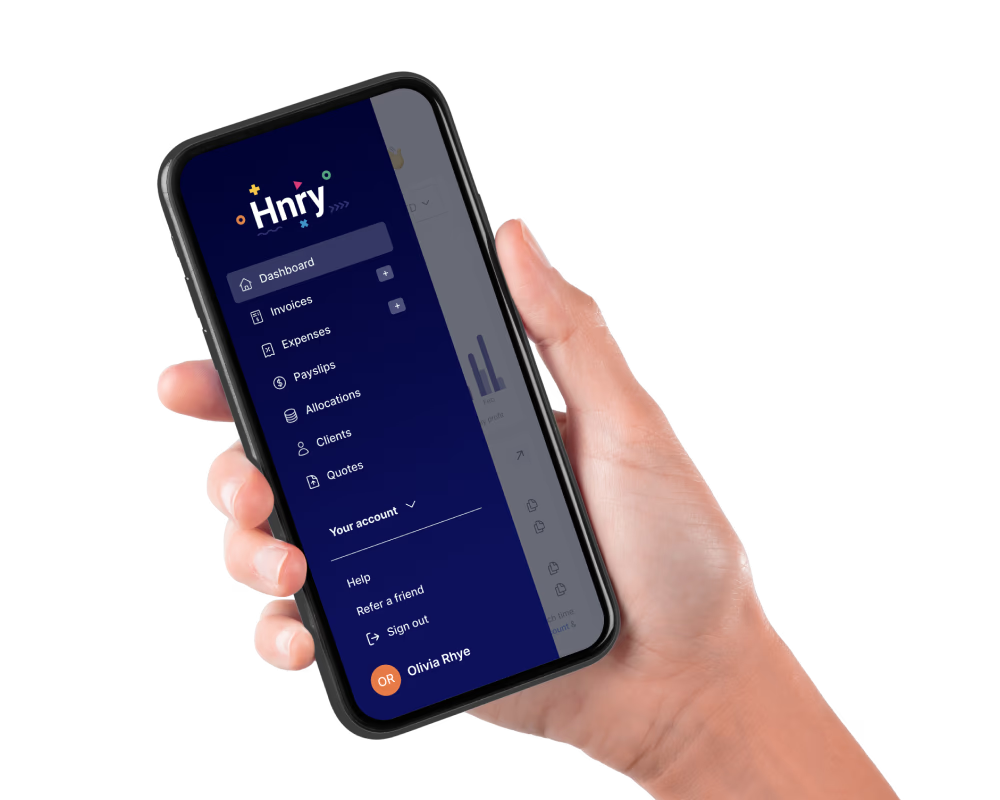If you’re a sole trader, chances are you’ve received an unexpected tax bill at some point. Calculating your own taxes can be complicated, and it’s easy to trip up at any point.
To help stop people from being hit with massive tax bills at the end of every tax year, the ATO has set up something called the Pay As You Go (PAYG) instalment system.
The tl;dr is that if you meet certain conditions (which we’ll cover in just a sec), you are required to pay your income tax in instalments (the “as you go” bit) across the current financial year.
In theory, these PAYG instalments help you pay your income tax by spreading payments out. But while it does prevent a huge final tax bill, it can also be tricky to get right.
That’s why we’ve created this PAYG instalments explainer. We’ll cover what it is, what it’s used for, who needs to pay PAYG instalments, and how to get it sorted.
What are PAYG Instalments?
PAYG instalments are the ATO’s tool to prevent huge tax bills at the end of every financial year. If you meet these three conditions, they’ll require you to pay provisional tax across the next financial year:
- You earned $4,000 or more of instalment income in the previous financial year
- You owe more than $1,000 in income tax from the previous financial year
- You have an estimated tax bill of $500 or more for the current financial year
💡 Note: when we say “estimated tax bill”, we mean estimated by the ATO, not you! You can’t estimate a tax bill of $0 and then just not pay tax. That’s not how anything works.
It’s important to note that PAYG instalments aren’t a separate tax. They go towards the same income tax bill everyone knows and loves, just in instalments.
The amount of each instalment is generally calculated based on previous year’s earnings. If you earn irregularly, or you made an unusual amount of money in the previous financial year (good for you!), this could prove a problem – you may be required to pay more now than you’ll ultimately owe. But don’t worry, we’ll get to this in a moment.
When are PAYG instalments due?
PAYG instalments are generally due 28 days after the end of each quarter. But like almost everything to do with the ATO, it depends on a few key things.
The ATO generally lets you know you’re required to pay PAYG instalments via a postal letter, or through myGov. This will include information on how often you need to lodge and pay. Although most taxpayers pay PAYG instalments quarterly, they may give you the option of paying biannually, or annually.
If you’re registered for GST, you can pay and report your PAYG instalments as part of your Business Activity Statement. Otherwise, the ATO will issue you with an instalment notice each quarter. You’ll need to complete and lodge these before the due date shown.
💡 Note: If you lodge electronically, you may be allowed to lodge up to two weeks past the due date.
💡 Also note: If you pay GST monthly, you’re not eligible for electronic late lodging, and your due date is 21 days after the GST period ends. For more information, visit the ATO website.

Calculating PAYG instalments
As we’ve mentioned, PAYG instalments are based on the income declared in your most recent tax return. But there are actually two methods you can use to figure out the amount due.
Set amount
For this method, the ATO will estimate your income tax for the current financial year based on the income reported in your most recent tax return.
From there, they divide the estimated tax you’ll owe by the number of instalments you’re required to make. This new amount is what’s due each PAYG instalment due date. Voilà!
Rate calculation
The other method the ATO allows you to use is calculating your PAYG instalments at a fixed percentage of your income.
Say for example you made $55k in self-employed income last financial year. Based on this, the ATO gives you a PAYG instalment rate of 7%. Going forward, you set aside that percentage of every pay, to go towards your PAYG instalments throughout the year.
You also only use the rate calculation on your PAYG Instalment Income. Not everything you earn will be subject to PAYG instalments, meaning you may need to do a bit of work to figure out exactly how much you owe.
It’s also important to note that the rates may be too low to cover your whole tax bill. Depending on your circumstances, you may prefer to go with the set amount for instalments – they’re much easier to plan for!
What if your income changes?
It’s not uncommon to make more or less than usual in any given year. Circumstances change, people take time off work – or their side hustle selling portraits of dogs takes off, becoming a full-time gig.
Whatever the story, a change in income doesn’t automatically change the amount you’re required to pay in PAYG instalments.
This may not be a huge issue if you’re making more – you just need to set aside extra to cover any extra income tax owing when you lodge your tax return at the end of the financial year. But if you’re making less than you used to, meeting your PAYG instalment obligations may become a problem.
The good news is that if you have a tax agent or accountant (like Hnry!) working on your behalf, it’s fairly easy for them to vary the payments to match your exact income.
The bad news is that if you don’t pay tax through an agent, you’ll have to do this yourself each quarter.
💡 Note: Be careful not to underestimate your instalments! You’ll be left with a shortfall at the end of the year. If your calculations are way off, you may also garner interest and penalties.

How to get it right every time
We’re probably biased, but we really believe that the best way to sort your taxes is by using Hnry.
Hnry pays your taxes throughout the year, so you’ll never have to think about tax (PAYG or otherwise!) again.
If the amount you earn fluctuates from month to month, Hnry automatically adjusts your income tax rate as you go to ensure that you pay the exact right amount of all your taxes – whenever you get paid.
That means:
- No more under or over-paying your income tax.
- No more worrying about your other taxes like GST, or your Medicare Levy – Hnry takes care of all your taxes for you, and lodges all your returns on your behalf
- No more eye-watering surprise PAYG instalments, and no more uncertainty about how much money to hold back for taxes
- No need to pay for a separate accountant and multiple software tools to handle your financial admin – Hnry is an all-in-one service.
Our team of accountants and tax experts, and our award-winning software, have got your back.
Join Hnry today!


